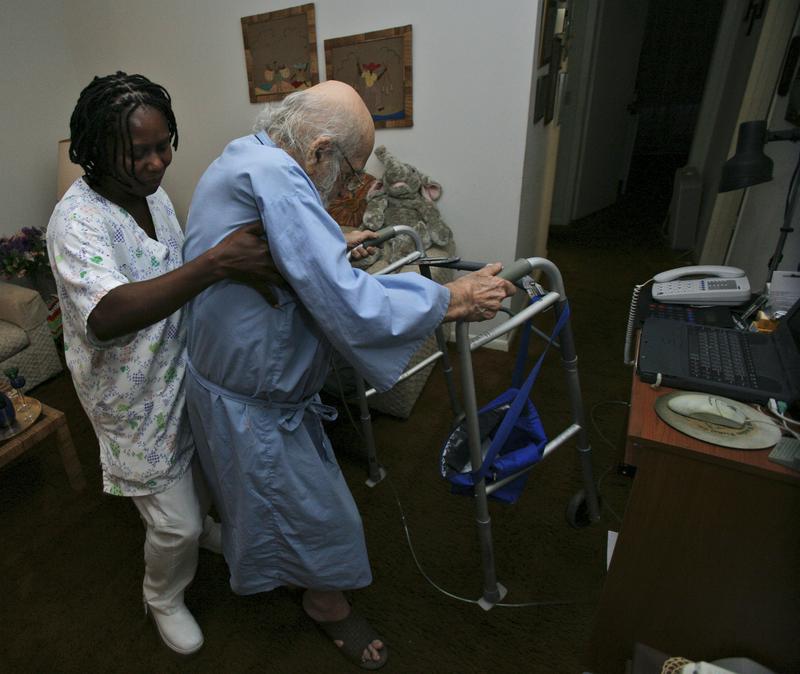
New York has the largest number of home health aides of any state, according to the Bureau of Labor Statistics. Many of them are immigrants. And in the current political climate, a growing number of them aren't turning up, either for re-certification, or for the patients they normally care for.
"We have more suspensions, [people] just not showing up to work," said Leah Nelson, a vice president at 1199SEIU, the union that represents thousands of healthcare workers in New York.
"I don't know if it's the rumor mill," she said. "When they hear that immigration is around in the neighborhood or maybe in their job, they're just afraid to even go to work."
Nelson said it's a recent phenomenon, one that really only accelerated late last year, after tens of thousands of Haitians were told their TPS or Temporary Protected Status would expire. Many Haitians work in the industry.
In the next 10 years, the country will need one million home care workers, according to healthcare experts. And Mary DiGangi, who helps run the Menorah Center for Rehabilitation and Nursing Care in Brooklyn, told The Takeaway it's not just immigrant workers who are being affected, but aging patients, too.
"We are anticipating a rise in the need for these individuals, because people are living longer. We have more people to take care of than we ever have before, and that trend is going to continue."
DiGangi said existing health aides have been informed they may need to take on additional shifts with little notification.
